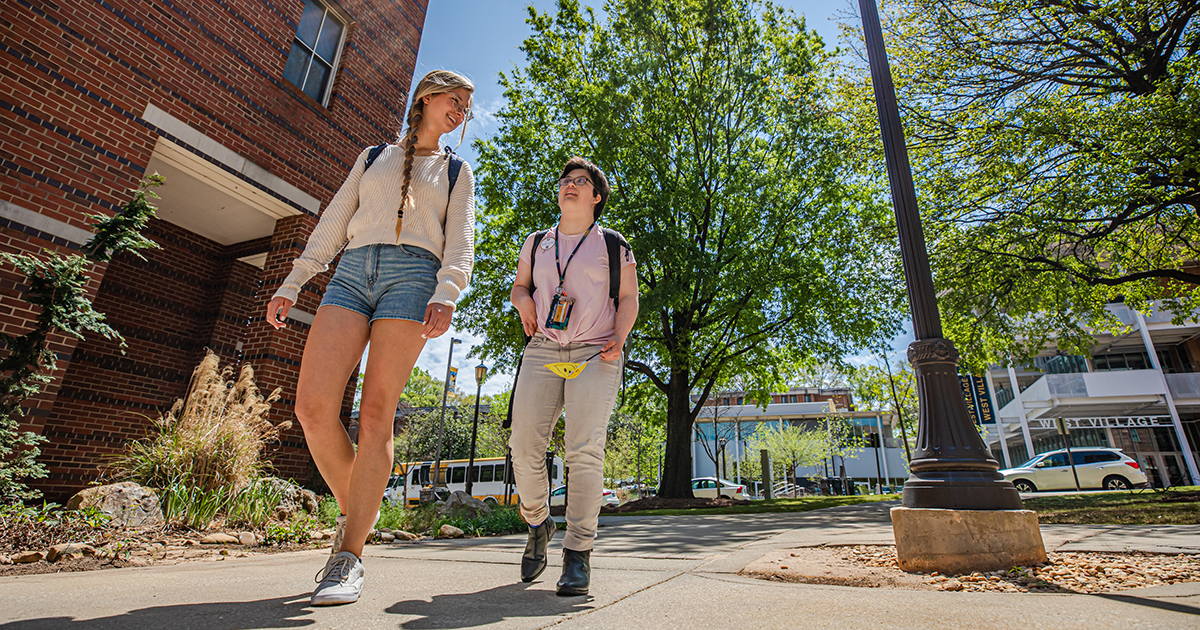

PA Transition Tidbits
Updates and Events - January 2025
A focus on post secondary education and training
TRANSITION TOOLKIT
Process for IEP Teams When Post Secondary Education and Training is Being Considered:
1. Communicate the continuum of post secondary education and training opportunities to student's and their families:
- 2- or 4-year college
- Post-secondary vocational training program
- High school completion document or certificate
- Short-term education or employment training program
- Community or technical college
- Apprenticeship program
- On-the-job training
- Licensing program
- Adult continuing education courses
- Adult training facility
- Adult center program
- Adult in-home program
- Other training program
2. Start with student's vision.
3. Gather data using transition assessments .
4. Develop IEP goals designed to help students develop skills needed to achieve their goals.
5. Develop a plan that includes services, activities, and relevant coursework.
6. Provide opportunities for self-determination.
Post Secondary Education and Training Preparation Toolkit
An array of postsecondary education and training (PSET) options are available for young adults with disabilities. Just as there is a wide range of skills and needs demonstrated by individuals with disabilities, there is an array of opportunities, services, and programs in PSET settings.
The NTACT:C Postsecondary Education and Training Preparation Toolkit (updated in 2023) is a compilation of guidance, research, policies and resources about effective practices to support students with a disability explore and prepare for success in the PSET setting that best fits their needs. Students, family members, service providers, or educators can use the Toolkit to consider options and plan for PSET access and success.
National Technical Assistance Center on Transition: The Collaborative (2023)
YOUth Can Do It!
Created by PaTTAN Youth Engagement Specialist
Post Secondary Education and Training Considerations for YOUth
Post-secondary education offers numerous benefits. It often leads to higher earning potential, greater job opportunities, and career growth. Additionally, it fosters personal development, equipping YOU with skills like critical thinking, problem-solving, and communication that are valuable in any job or life scenario. It also facilitates networking opportunities with peers and mentors who can provide guidance or career connections. A degree or certification enhances job security and adaptability in a shifting job market.
Choosing a post-secondary education path involves careful consideration of several key factors. Start by reflecting on your career aspirations. Does the program align with your desired job? Will additional education or licensing be required? Next, think about your availability. Balancing school, work, or family responsibilities may necessitate selecting a program that fits your schedule, whether it spans months or years.
Cost is another critical consideration. Understanding tuition fees and exploring options like financial aid, scholarships, or grants can help manage expenses. Learning preferences also play a role. Do you thrive in hands-on environments, traditional classrooms, or online settings? Finally, research the job market for your chosen field. Assess job opportunities and potential salaries to ensure the path you select paves the way for success.
RESOURCE SPOTLIGHT
Spotlight on Arcadia University’s REAL Certificate Program
This inclusive program offers students with intellectual or developmental disabilities an academic, vocational, and social pathway to post-secondary education. Tailored for those who received significant special education services in high school and may not meet conventional admission requirements, the REAL Certificate allows participants to audit undergraduate courses and engage in various vocational and social activities alongside their peers. Students may choose to live on campus or commute, with personalized plans ensuring a meaningful college experience.
Arcadia’s commitment to global education is exemplified by its Preview The World program, which gives first-year and transfer students, including those in the REAL program, unique study abroad opportunities. Spring 2025 destinations include Costa Rica, Italy, Greece, Paris, England, Scotland, and more.
The REAL Certificate is recognized as a Comprehensive Transition and Postsecondary Program (CTP) by the U.S. Department of Education, enabling eligible students to apply for specific federal financial aid. Additional funding options, including waivers or assistance from the Office of Vocational Rehabilitation, may also be available. Graduates receive a certificate of completion, as the program is not an accredited college degree pathway.
Student Perspective: A.P.’s Journey
A.P., a first-year student in the REAL program, shines with enthusiasm about his experience. Despite taking the same courses as his peers outside the program, he values the opportunity to engage in internships and work placements that enhance his social skills and boost his confidence. A.P.’s favorite highlight is managing a campus podcast where he discusses a range of topics, with sports being his favorite due to his internship with the basketball team.
Living on campus with other REAL students, A.P. feels fully included in university life. He looks forward to his second year, where he’ll have the flexibility to retain or switch roommates, further enriching his college experience.
For more information on Arcadia and their REAL program please visit this link.
Inclusive Postsecondary Education
Inclusive postsecondary education (IPSE) refers to people with intellectual disability being
enrolled in colleges and universities. It may also be called inclusive higher education.
Students with intellectual disability enrolled in IPSE programs attend college with other
peers with or without disabilities. These students have access to academic classes,
internships, social clubs, Greek life, athletics, recreation, residence and dining halls, campus offices, and employment opportunities. Watch a short video below.
Transition and Postsecondary Programs for Students with Intellectual Disabilities (TPSID) are available across the Commonwealth. Search programs in PA and around the nation here (https://thinkcollege.net/college-search).
Dual Enrollment Opportunity for Students on the Autism Spectrum
Pairing two of its most popular and productive programs – the Autism Initiative at Mercyhurst (AIM) and Bachelor of Science degree in Cyber Security – Mercyhurst University announces a dual enrollment program for high school students on the autism spectrum.
The pilot program is supported through a partnership with the Pennsylvania Cybersecurity Center (PCC), which promotes cybersecurity innovation in the region through infrastructure, education, training, and mentorship.
Enrollment is open for the spring semester!
To learn more, use this link.
PA Secondary Transition – Public Square
Looking for a place where you can Connect, Collect, & Contribute
to all things secondary transition?
Connect with people from across our state to collect
resources, share events and contribute stories about positive post-school outcomes!
Click here to create an account and login to join our PA Secondary Transition- Public Square.
PARTNER SPOTLIGHT
National Technical Assistance Center on Transition: The Collaborative (NTACT:C)
Are you looking to learn more information about transition?
Check out their Training Resource Library.
If you're new to transition, be sure to check out Transition 101!
TRANSITION EVENTS
Charting the LifeCourse Introductory Training
Registration Now Open
Charting the LifeCourse Introductory Training
Two dates available (same content in both sessions):
Thursday, January 16, 2025 from 1:00 PM – 2:30 PM
Introduction to Charting the LifeCourse (CtLC) is designed to present learners with an overview of the CtLC person-centered framework. It will provide a general awareness of the guiding principles and tools presented by a Certified CtLC Presenter. This training is designed for anyone who is interested in learning about the CtLC Framework and will be led by Lisa Meyer and David Forbes.
After the CtLC training, participants will be able to:
Define the core belief of the CtLC Framework.
Identify how CtLC principals and tools can enhance decision making, problem solving and self-advocacy in individuals.
Describe ways CtLC is applied.
Save the Date!
2025 Summer Academy for students who are Deaf and Hard of Hearing (DHH SA)
OVR is excited to share with you information about the 2025 Summer Academy for students who are Deaf and Hard of Hearing (DHH SA) will be back for the summer of 2025. We are looking forward to proving students with an amazing experience this summer.
Location: Penn State University Park Campus
Time: Monday, June 23, 2025, to Monday, June 30, 2025 (7 Days)
Application Deadline: Wednesday, February 5th, 2025
Link to Apply: 2025 DHH Student Application
Brief Description of the Program: The Office of Vocational Rehabilitation Deaf and Hard of Hearing Summer Academy is designed to offer high school age students who are deaf or hard of hearing an opportunity to develop their knowledge, experiences, and awareness as it relates to their future academic and employment goals. Students will participate in a 7-day program on a college campus, where they will receive assessments, information, and educational experiences in various curriculum areas.
Below you will find the Summer Academy Flyer
We are excited to have your customers apply for this important and beneficial program! For assistance or further information, please contact me at:
Email: rgoddard@pa.gov
Phone: (724) 936-5076
Videophone: (717) 831-0336
Text: (724) 614-6154
2025 BVI Summer Academy Program
The Office of Vocational Rehabilitation/Bureau of Blindness and Visual Services (BBVS) Summer Academy Program is designed to offer high school age students with visual impairments an opportunity to develop their knowledge, experiences, and awareness as it relates to their future academic and employment goals. Students will participate in a 7-day program on a college campus, where they will receive assessments, information, and educational experiences in various curriculum areas.
Location: Penn State University Park Campus
Time: Monday, June 16, 2025, to Monday, June 23, 2025 (7 Days).
Application Deadline: Wednesday, February 5, 2025.
Link to Apply: 2025 BBVS Student Application
Below you will find the Summer Academy Flyer.
We are excited to have your customers apply for this important and beneficial program!
For assistance or further information, please contact me at: Email: kifoley@pa.gov Phone: (814)-949-7960
PA SECONDARY TRANSITION EVENTS CALENDAR
Are you looking for transition events across PA?
This newsletter is brought to you by The Pennsylvania Community on Transition
The Pennsylvania Community on Transition is a group of various stakeholders from across Pennsylvania who work collaboratively to ensure appropriate transition outcomes for Pennsylvania youth and young adults.
The Pennsylvania Community on Transition is a state leadership team consisting of representative from: the State Departments of Education, Health, Labor and Industry, and Human Services; Various Serving Agencies, Young Adults, Parent Organizations, Advocates, Higher Education, and Employers.
The shared vision and common goals of the Pennsylvania Community on Transition is achieved when all PA youth and young adults with disabilities:
- Successfully transition to the role of productive and participating adult citizens
- Are empowered to recognize their talents, strengths, and voice
- Have equal access to resources that will promote their full participation in the communities of their choice.
Email: pasecondarytransition@gmail.com
Website: https://www.pasecondarytransition.com/
Phone: 4128266878
Twitter: @hmangiskuntz








